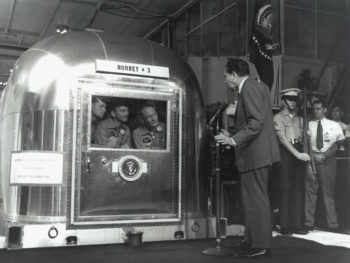
Mars 2020 rover is a first step in bringing back specimens from the Red Planet to Earth.
Credit: NASA/JPL
A just-released study recommends that NASA should update policies that protect planets and other solar system bodies during space exploration missions.
The current process for planetary protection policy development is inadequate, the report explains, and also notes that private-sector space exploration activities are another reason why planetary protection policies need re-examination.
The new report comes from the National Academies of Sciences, Engineering, and Medicine.
Wanted: Strategic plan
The report — Review and Assessment of Planetary Protection Policy Development Processes — calls for NASA to develop a planetary protection strategic plan, assess the completeness of policies, and initiate a process to formally define requirements that are missing.
NASA should also identify a strategy for dealing with major policy issues, the report adds, such as sample-return from and human missions to Mars and private-sector solar system exploration missions.
Mars, icy moons
Spotlighted in the report are Mars Sample Return and exploration campaigns to the icy moons of Jupiter and Saturn.
Furthermore, NASA does not currently have a planetary protection policy in place regarding human exploration to Mars, which could take place in the 2030s. Moreover, the current U.S. government process to oversee samples returned from Mars and elsewhere dates back to the Apollo era – a process that is out of date.
Tesla tossing
In terms of commercial space exploration, there is no regulatory agency within the U.S. government with the authority to regulate space exploration by non-government entities. Legislation should be proposed that grants authority to an appropriate federal regulatory agency to authorize and supervise private sector space activities, the report says.
Flagged in the report as a current example of this concern is the SpaceX Falcon 9 Heavy booster tossing of a used Tesla roadster into a Mars-crossing orbit. To the best of the committee’s knowledge that wrote the report, no consultations as to the test’s planetary protection implications took place.
To read the report — Review and Assessment of Planetary Protection Policy Development Processes – go to:




